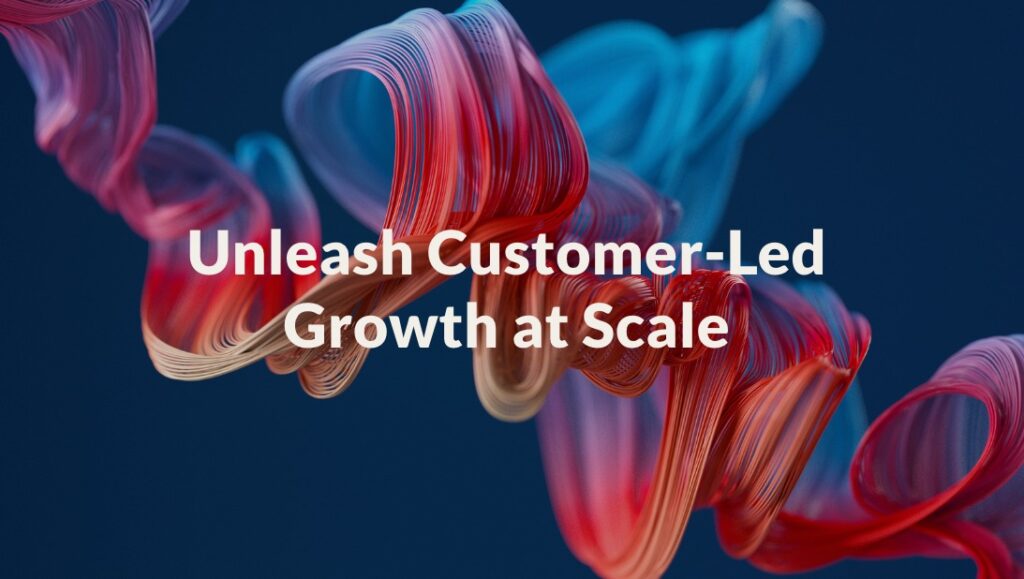The fintech industry continues to boom, with banking app revenue growing by approximately 88% from 2020 to 2021. But with this heightened consumer interest comes increased competition. Challenger banks (or neobanks) have to find ways to stand out from other providers to successfully grow their user base and profits.
Many of these fintech companies turn to niche marketing tactics to stand out. Instead of trying to appeal to a mass audience, they focus their branding and value proposition to appeal to hyper-specific verticals. One effective way to do this is by offering rewards tailored to a specific demographic. These unique incentives allow challenger banks to offer personalization, a deeper sense of community, and strong emotional investment in the brand. These rewards keep users coming back for more and give fintech brands the competitive edge they need.
If you’re looking for creative ways to reward a niche audience and build lasting brand loyalty, take lessons from these notable challenger banks:
1. Novus Lets Users Redeem Impact Coins to Support Sustainable Causes
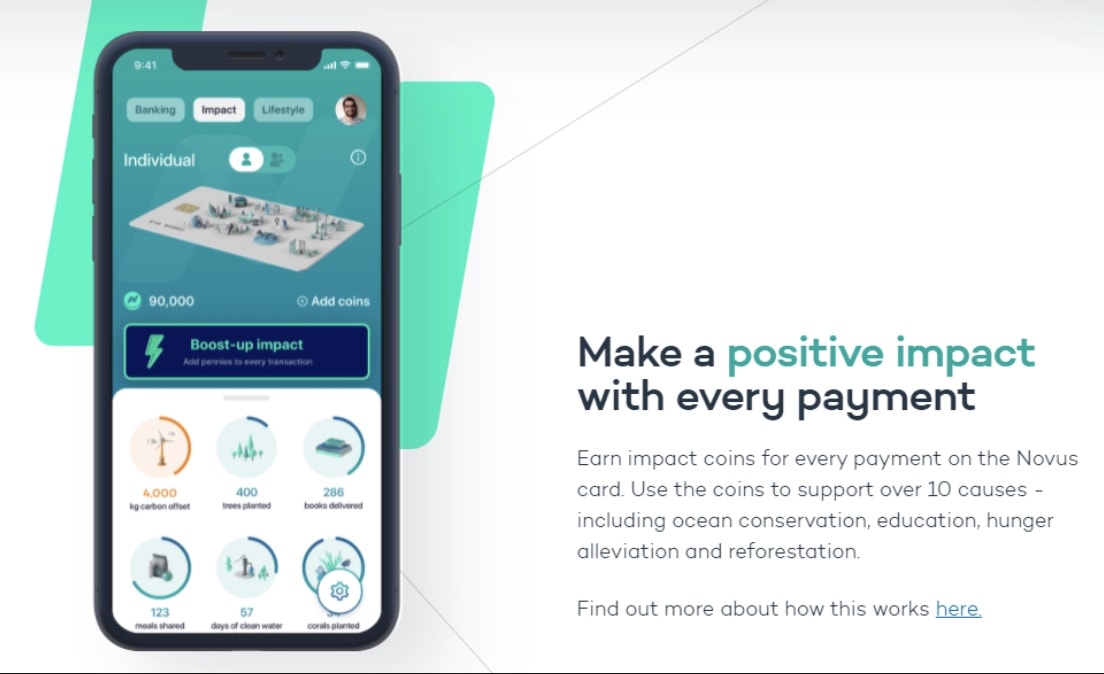
Source: Novus
Novus defines itself as “the next generation digital banking and lifestyle app for a sustainable future.” With over 25,000 users on its waitlist already, this challenger bank capitalizes on the growing consumer desire to support socially responsible brands.
Each time a user spends with their Novus card, they earn “impact coins” that turn into donations to different nonprofits. Users then gain access to a dashboard that measures the impact of their donations on both individual and collective levels, from ensuring clean water to distributing books. This fosters a sense of community and purpose. Novus also promotes conscious consumerism with its own in-app “ethical marketplace,” where users can shop from a curated list of ethical brands to earn cashback rewards.
2. Banx Offers Rewards That Offset Carbon Emissions
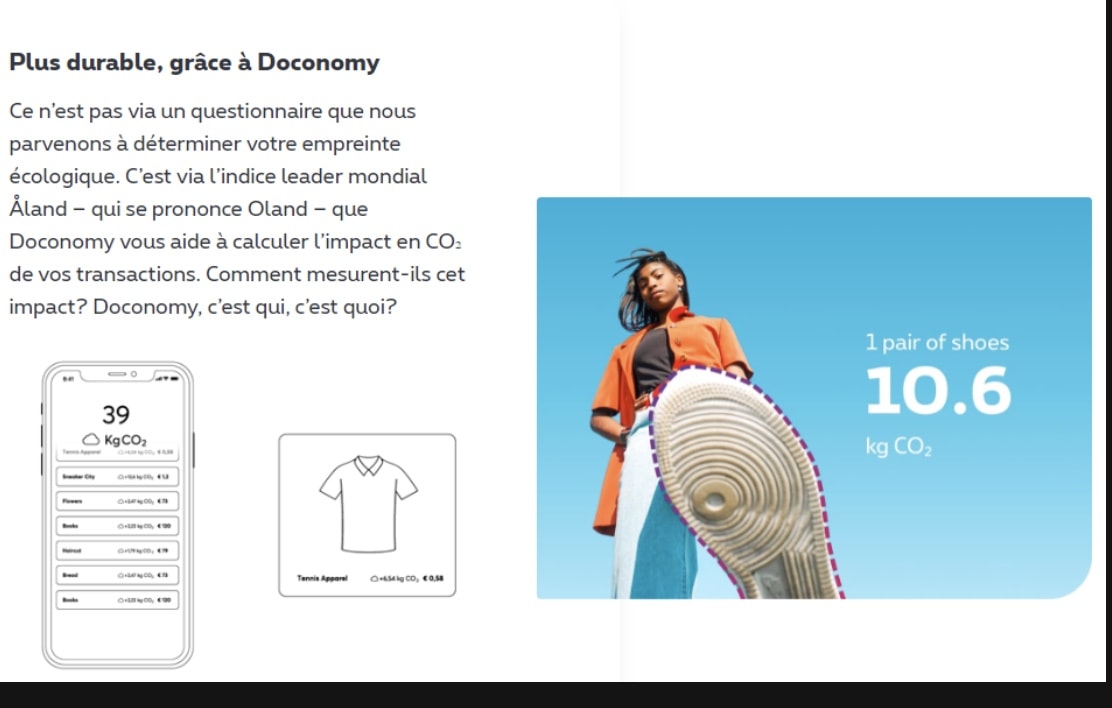
Source: Banx
Similar to Novus, Belgian challenger bank Banx targets conscious consumers looking to make more sustainable spending choices. Banx focuses solely on environmental impacts using an innovative dashboard from Doconomy that lets users see how much carbon they produce based on their purchases and offers ways to offset it.
Banx rewards users with points for using the app and participating in challenges, such as going cashless for a month. Users can turn these points into donations to sustainability projects in Belgium or to one of the company’s environmental partnerships. The challenger bank also plants a tree for every new customer who joins, which is an implicit referral incentive that encourages eco-conscious users to recommend the brand to their friends.
3. Stilt Helps Immigrants Build Wealth with Its Double-Sided Referral Program

Source: Stilt
Challenger banks are known for making financial services more accessible. Stilt does this by helping U.S. immigrants get personal loans by removing common barriers like Social Security Number verification and cosigner requirements.
The company has a double-sided referral program that allows users to earn up to $500 each year. This reward might not seem all that unique, but it’s an appealing incentive for a target demographic with many low-income individuals who won’t receive public assistance because of concerns over their immigration status.
Stilt’s founders are both Indian immigrants who encountered financial difficulties. They’ve used this firsthand experience and compassionate insight to shape their company strategy to effectively meet the needs of their target audience.
4. Walrus Gives Gen Z High-Tech Prizes and Bitcoin

Source: Walrus
A challenger bank helping young adults to “level up their money game,” Walrus has successfully tapped into the Gen-Z culture to attract over 450,000 users since its 2020 launch. Walrus’ founders note that while nearly 20% of India’s population is made up of individuals under age 24, the demographic has been “underserved” by traditional banks who don’t see them as lucrative customers.
The company offers rewards through its Walrus Premier League, where users play games for the chance to win high-tech prizes, and lets users earn Bitcoin as they use the Walrus app. They also capitalize on the desire for exclusive social interaction and connection by positioning its user base as the “Walrus Club.”
5. Step Offers No-Hassle Referral Codes That Aspiring Brand Advocates Love

Source: Step
Similar to Walrus, Step has incentivized its teen market with a brand community and gamification, amassing over 2 million users. Step’s rewards program is modeled as an affiliate marketing program, where users share a unique code that lets them earn money every time someone uses it to sign up. Users become active brand advocates to boost the reach of their referral code, and it’s an easy way to earn rewards.
Step’s rapid growth can also be attributed to its “Step Squad,” an exclusive group users can join when they complete certain tasks, like getting three successful referrals and making at least one purchase and payment. Users are quickly rewarded with more money for referrals, early access to the latest Step features, and a sense of achievement when they earn their official membership.

Expand Your Finserv Customer Base With Referral Marketing
The Finserv market is growing at a furious pace. Leverage your advocates to capture new clients and drive more growth.
Get the Guide6. Pinch Turns Swipe Fees into Cash for Content Creators
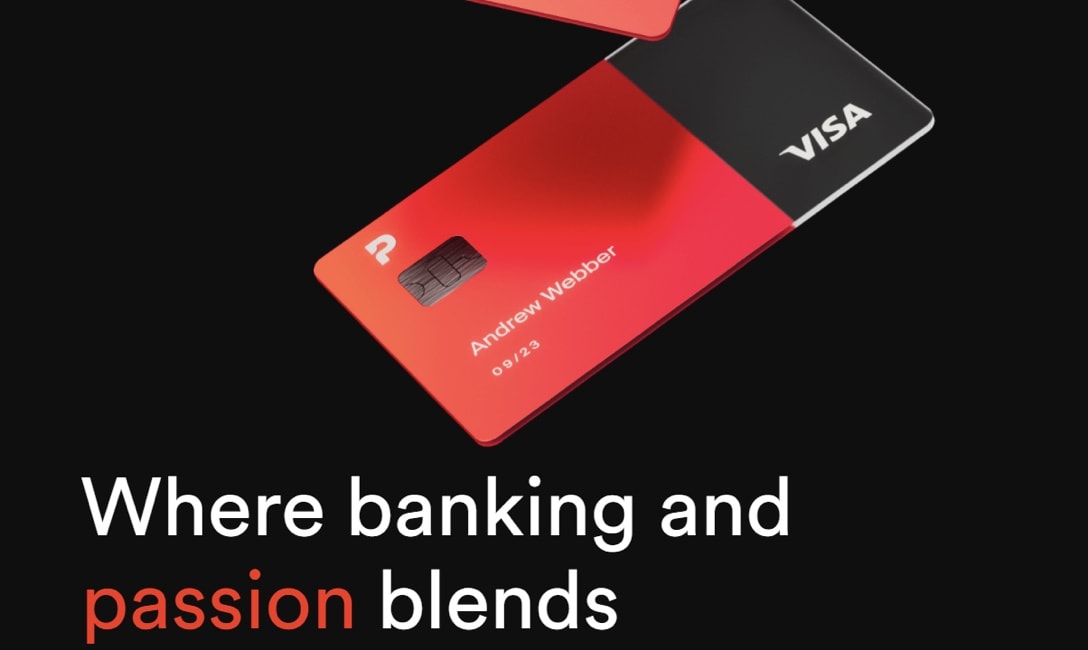
Source: Pinch
Pinch takes a unique approach to social responsibility by letting social media users give back to their favorite content creators, many of whom share work for free. While influencers are often looked at as the new rich and famous, HypeAuditor found that around 88% of surveyed microinfluencers (1,000 to 10,000 followers) don’t actually make money from their content creation – even though they spend an average of 20 hours a week on it.
Pinch lets users take card swipe fees and give them to their favorite creators, which creates a sense of altruism and a more personal connection between fans and creators. Pinch also has its own rewards store with items that appeal to tech-savvy young adults.
7. Daylight Supports Queer-Friendly Spending with Cash Back

Source: Daylight
As noted in TechCrunch, challenger bank Daylight is designed to “build a more equitable financial life for LGBTQ+ folks and their chosen families.”
CEO Rob Curtis notes that in addition to digital offerings helping members navigate financial challenges from “higher debt accumulation to factors such as pre-existing conditions,” Daylight offers cash back for shopping at LGBTQ+ allied businesses and queers bars. The app further cultivates intentional shopping habits by alerting users to vendors that support anti-LGBTQ+ causes.
Lastly, while not a financial reward, another empowering Daylight feature is allowing users to get a debit card with their chosen name on it instead of their birth name. This is a thoughtful, authentic action affirming Daylight’s commitment to supporting LGBTQ+ individuals in overcoming their unique obstacles and valuing them as more than just a number.
8. Greenwood Takes Spare Change and Invests in Black and Latinx Communities
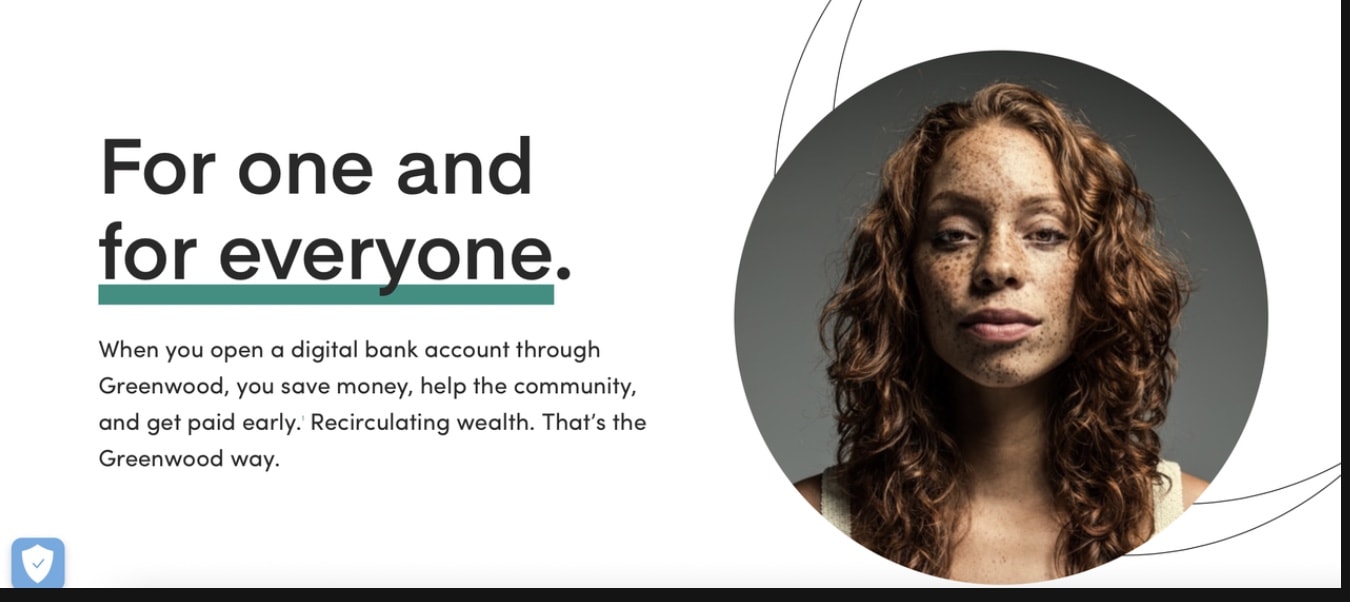
Source: Greenwood
Created to address the historic financial gap between Black and Latinx individuals and their white counterparts, challenger bank Greenwood lets users round up their purchases to support the United Negro College Fund, the National Association for the Advancement of Colored People, or Goodr.
Greenwood further supports keeping wealth in the community by giving one $10,000 grant a month to a minority-owned business that uses the app. This is particularly appealing to these small businesses that felt the worst impacts of the COVID-19 pandemic.
Greenwood has gained over 500,000 users on its waitlist with its promise to donate meals to food-insecure families for each account registration and by taking a page out of Robinhood’s gamification book: for every referral, users move up a spot on the waitlist.
9. Jefa Rewards Women for Taking Care of Their Health
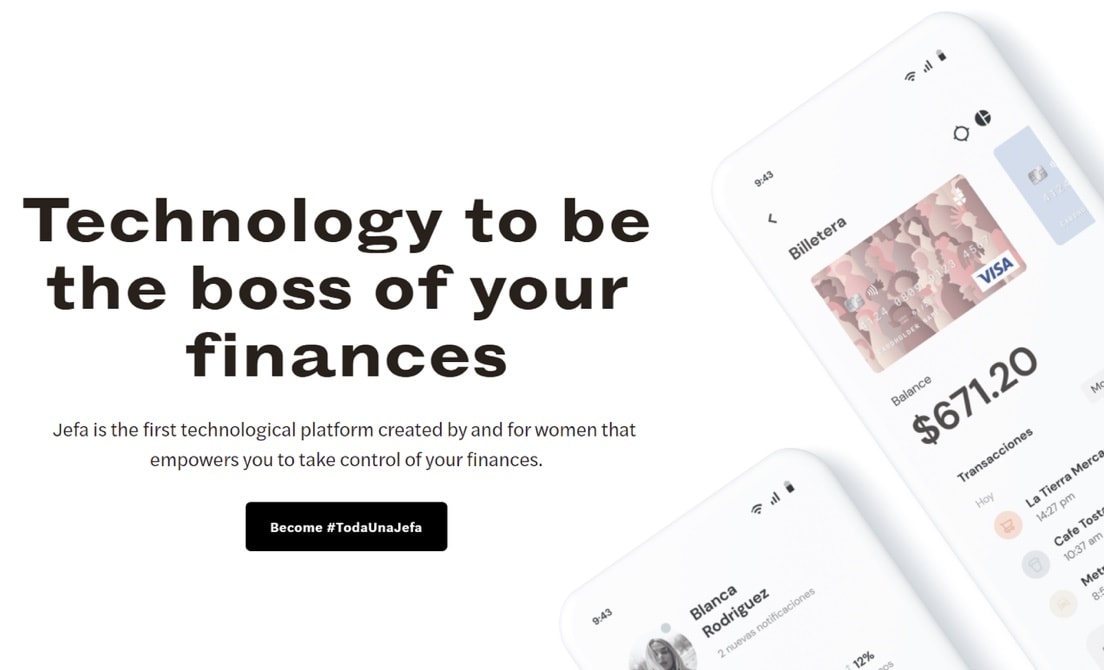
Source: Jefa
Women account for 55% of individuals without bank accounts across the globe. Startup Jefa is looking to change that by making banking more accessible to Latin American women, most of whom don’t have bank accounts but still contribute to the workforce.
Jefa founder Emma Smith notes that since most fintech founders are men, there’s an “inherent male bias” in the products and services they create. Jefa aims to create a women-centric community that supports them in innovative ways, like a rewards program that gives cash back for activities like purchasing feminine hygiene products and visiting the gynecologist. The app just hit over 100,000 users on its waitlist in March 2021.
10. Laurel Road Offers Financial, Physical, and Mental Wellness Perks to Doctors

Source: Laurel Road
“We’re guessing you didn’t spend eight years in med school to study finance.” This cheeky tagline from challenger bank Laurel Road nails its value proposition: an easy financial management solution for doctors. While you might expect doctors to stick to traditional financial institutions, Laurel Road has attracted this segment by demonstrating an in-depth knowledge of its audience’s pain points and crafting innovative, secure solutions to address them.
Besides letting users benchmark their financials against others in similar positions and locations, Laurel Road lets doctors apply their cashback right to their student loans. Their Perks! program offers discounts on wellness products and services, including therapy.
Refer-a-Friend Programs Help Challenger Banks Take Niche Marketing to the Next Level
Referral programs are an effective tool for promoting unique rewards and growing your brand’s loyal customer base. Check out Forrester’s Total Economic Impact™ Study on Extole to learn how we can execute your niche marketing strategies to boost user acquisition and your return on investment.
